In this article
View 2 More +Any cat owner knows that cats are interesting and peculiar creatures. Most march to the beat of their own drum, and sometimes, it’s hard to decipher a cat’s feelings and emotions.
Cats are masters of hiding when they’re sick, but what about when they grieve? Can you tell when your cat is sad and in mourning? Interestingly, even though cats hide when they’re sick, they may not hide when they’re grieving, depending on how closely bonded they were with the deceased pet or human. Although a lot remains unknown about cats’ grief, studies have shown that this is certainly possible but may be partly influenced by the owner’s interpretation as well.1
In this article, we’ll discuss the signs to watch for that will tell you if your cat is grieving. Some cats will mourn and grieve the loss of a human or animal companion, while others won’t, so let’s look more into the surprising details.
If your cat seems to be grieving, but they are lethargic, unwilling to move, or not eating, they will need to be examined by a vet promptly, as they could also be sick or become dehydrated.

The 7 Possible Ways Cats Grieve & Show They Are Mourning
1. Decreased Appetite
One sign your cat is grieving may be reduced appetite. Some cats may be picky eaters, making this sign not so obvious depending on your cat’s normal eating habits. However, if your cat is usually a good eater and is not eating much, it may be due to grief, as 46% of mourning cats may experience a decreased appetite.1
We should note that if your cat is not eating, it’s vital to consult your veterinarian. Not eating can cause a life-threatening condition called hepatic lipidosis, also known as fatty liver syndrome, or it may be a sign of an underlying illness unrelated to mourning.
If you need to speak with a vet but can't get to one, head over to PangoVet. It's an online service where you can talk to a vet online and get the advice you need for your pet — all at an affordable price!
2. A Change in Energy Level
A grieving cat may display a decreased interest in play and become quiet. On the other hand, your cat may become overactive or hyper. The way to gauge this change in behavior is to compare your cat’s normal energy level to the energy level after losing a close companion. If you notice a change in activity levels, it’s probably due to grief. However, if your cat is lethargic, especially if they are older or suffering from an underlying health issue, it’s crucial to get them checked over by a vet, as signs of illness may be easily mistaken for grief.
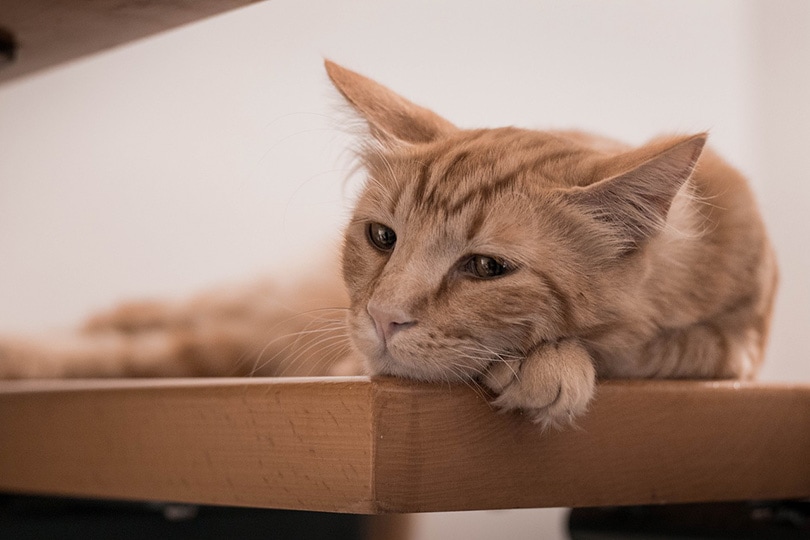
3. Increased Vocalization
A grieving cat may start vocalizing much more than usual. In fact, 70% of cats in mourning will either have an increase in vocalization or become quieter as a result of grief. A grieving cat may also be vocal at unusual or odd times of the night.
There are many other reasons why your cat may have increased vocalization, from physical pain or injury, underlying illness such as hyperthyroidism or high blood pressure, cognitive decline in older cats, or a territorial issue, to your cat’s specific breed. However, if your cat has recently lost a companion, the increased vocalization is probably due to the grieving process, but it’s worth getting them checked over by a vet to be sure.
4. Searching for Lost Companion
A cat may wander the home and surrounding areas for their lost companion. You may notice your cat investigating areas they have never shown interest in before, or your cat may constantly stare out the window, hoping the lost companion returns home.
On the contrary, your cat may hide in unusual places, such as under your bed or hiding in a room they never frequent.
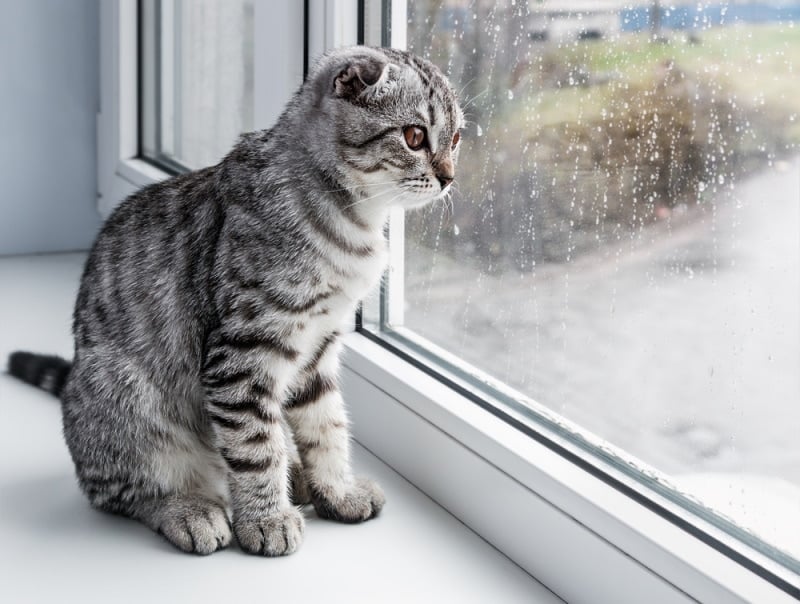
5. Increased Neediness
Your cat may become clingy during the grieving process, which could lead to separation anxiety. Your cat may demand to sleep with you or constantly desire the company of your lap; your cat may also meow or get stressed and anxious when you leave home, which can be heartbreaking.
Separation anxiety can lead to unwanted behaviors, such as urinating or defecating outside the litter box, being destructive, or excessive grooming. Your veterinarian can help construct a plan to decrease the behaviors with medications or explain behavior modifications.
6. Stress-Induced Health-Related Issues
Stress-related health issues can cause a whole slew of problems ranging from excessive grooming, aggression towards people or other pets, going potty outside the litter box, diarrhea, constipation, decreased appetite, excessive scratching, and hiding. Your cat may also sleep more than usual.
If your cat displays any of these signs, it is important to have your cat checked by your veterinarian to rule out possible health-related issues.
7. “Depression”
A grieving cat will more than likely be “depressed”, which can involve many changes in their mood and behavior, many of which we’ve listed in this article. A cat suffering from depression-like disorder could experience a loss of appetite, lethargy, loss of interest in play, increased vocalization, hiding, excessive grooming, not using the litter box properly, an increase in sleep, and many others
If your cat is displaying any of these signs, a trip to your veterinarian is warranted to rule out a possible medical issue.
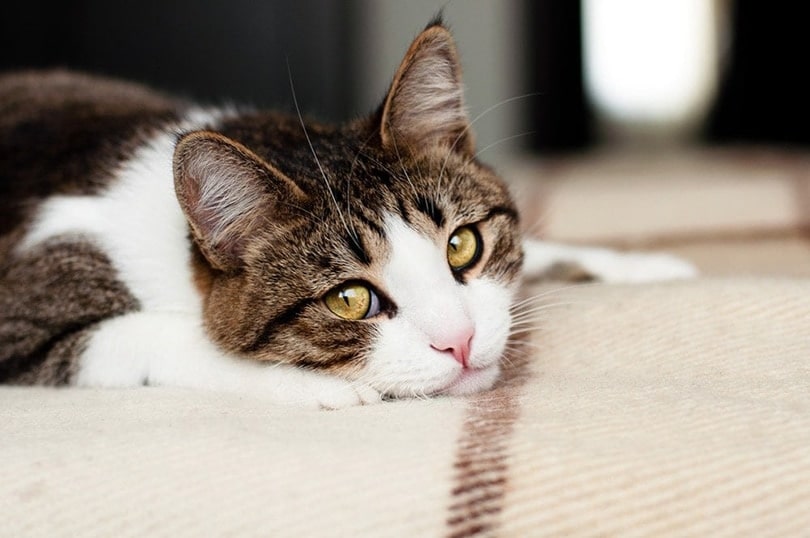

How Can I Help My Cat Cope with Grief?
No cat parent wants to see their cat grieving, but how can you help your grieving cat? Luckily, there are many ways, but first ensure your cat gets checked out by a vet, to rule out any underlying health issues.
- Spend more quality time with your cat. Try to engage your cat to play with you or allow your cat to snuggle with you if that’s something they desire. You can also keep your cat’s favorite treats handy; just take care not to overfeed your cat.
- Make sure your cat has entertainment when you’re gone, such as leaving out a favorite toy or supplying them with a new scratching post.
- Reinforce good behavior and ignore negative behavior. A mourning cat may vocalize more, and you should resist giving a treat to show this behavior is not desirable.
- Be more affectionate with your cat and shower them with lots of love.
- Invite a favorite person of your cat (if they have one) to spend quality time with. If your cat has a four-legged companion, by all means, have that companion over to spend time with your grieving cat.
- Give it ample time before you replace your lost furry companion. Doing it too soon may produce negative results for your grieving cat.
Tips for Keeping Your Cat Safe
We all want to keep our kitties safe, and one way to do this is by feeding them the appropriate diet. Cats tend to get obese if fed too much, and ensuring your cat has the right amount of food per day is detrimental to keeping obesity at bay.
Always ensure your cat has drinking water available at all times, keep vet checkups and vaccines up-to-date, and keep toxic plants out of reach from your cat’s curious paws.
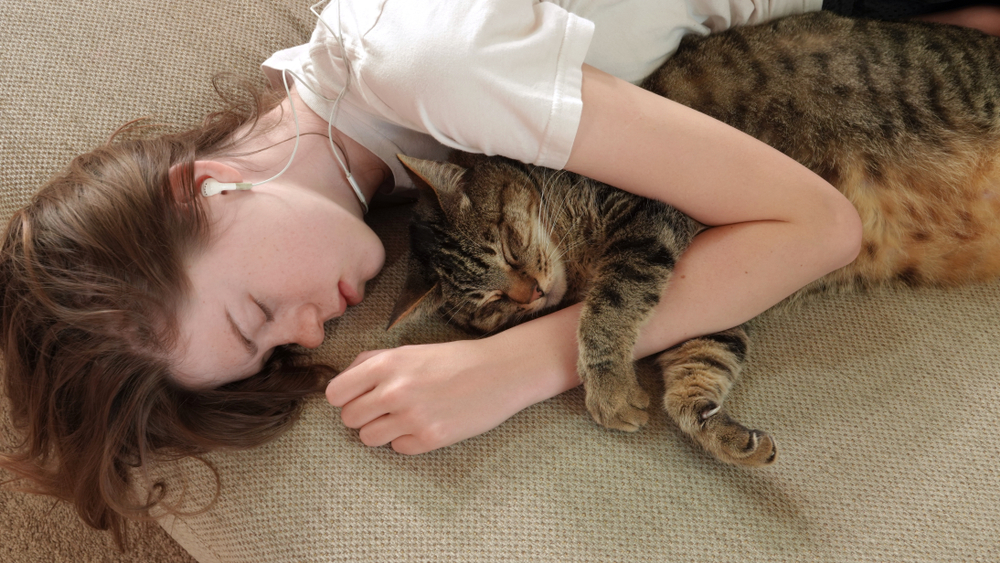

Conclusion
As you can see, cats are capable of grieving, but there are ways to help your cat during the grieving process. Watch for signs of mourning, and if any behavior becomes unhealthy, take your cat to your veterinarian for an assessment.
Eventually, your cat will cope and become accustomed to the loss of the companion, but it takes time. Be patient, and give your kitty lots of love during the process.
- Related Read: How to Help a Friend Who’s Grieving Over a Cat: 10 Tips
Featured Image Credit: Kginger, Shutterstock




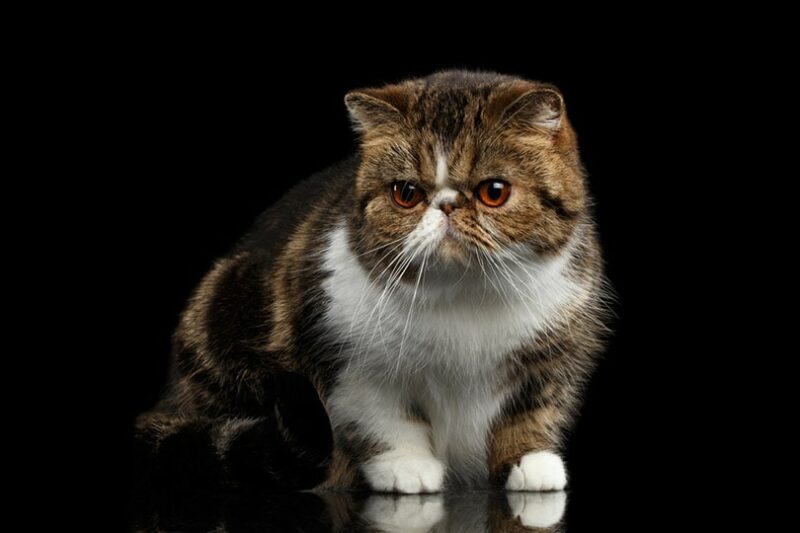
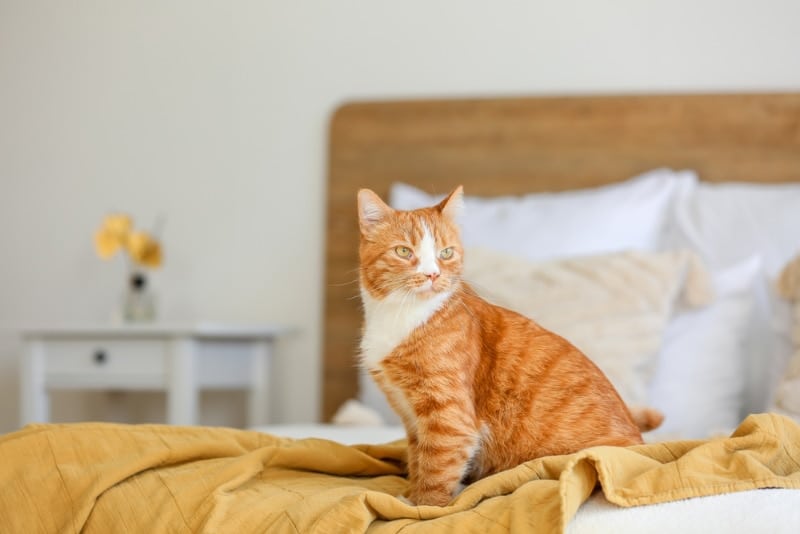
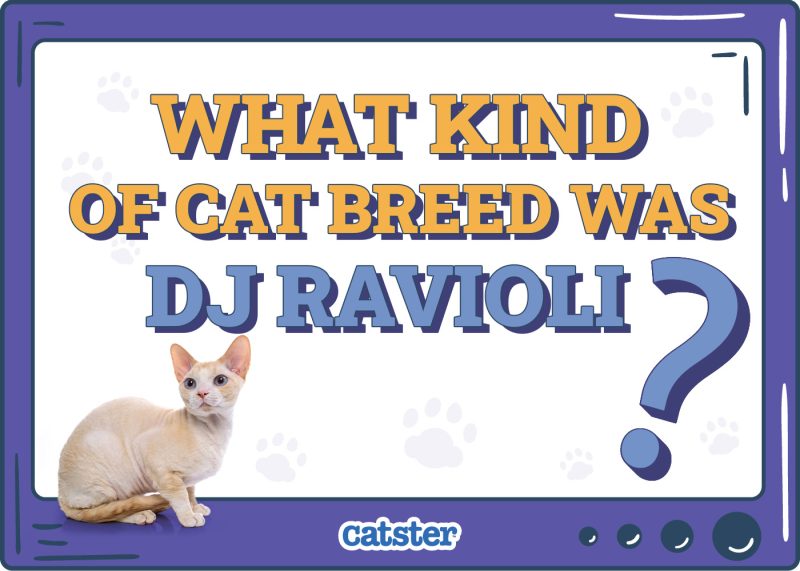
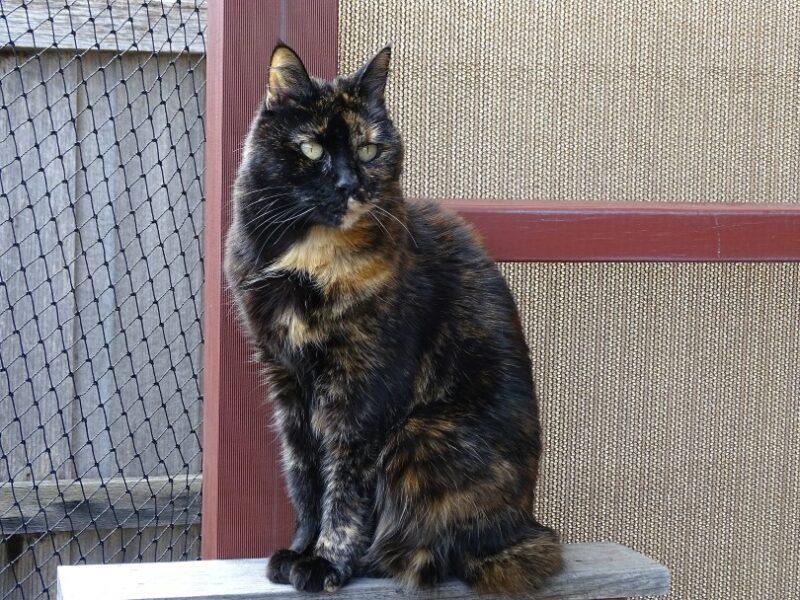

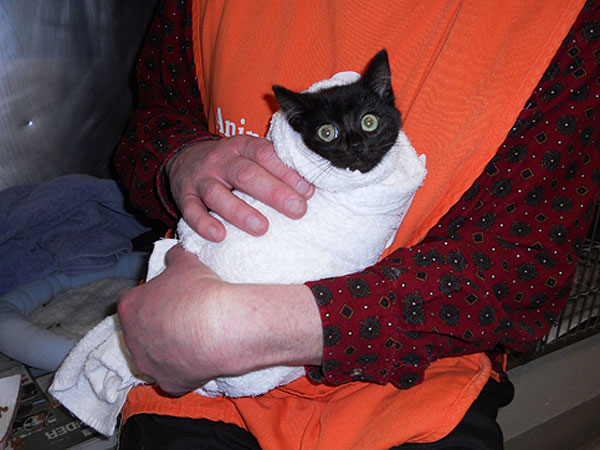
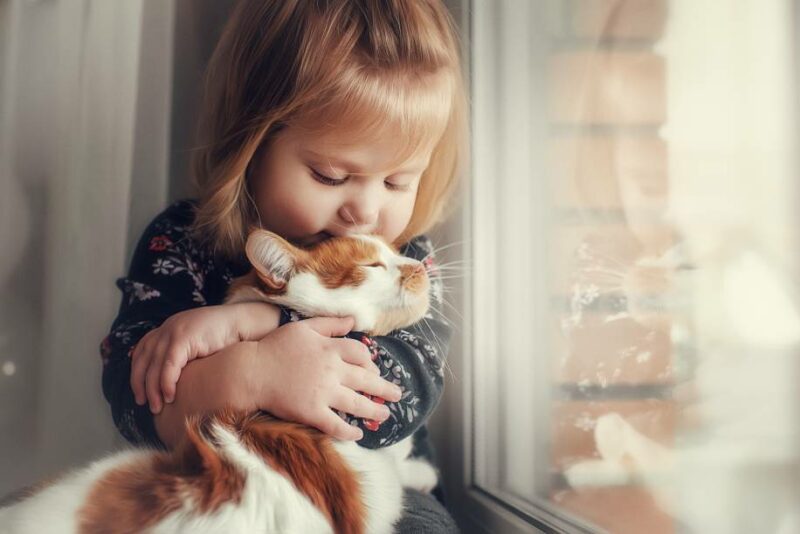
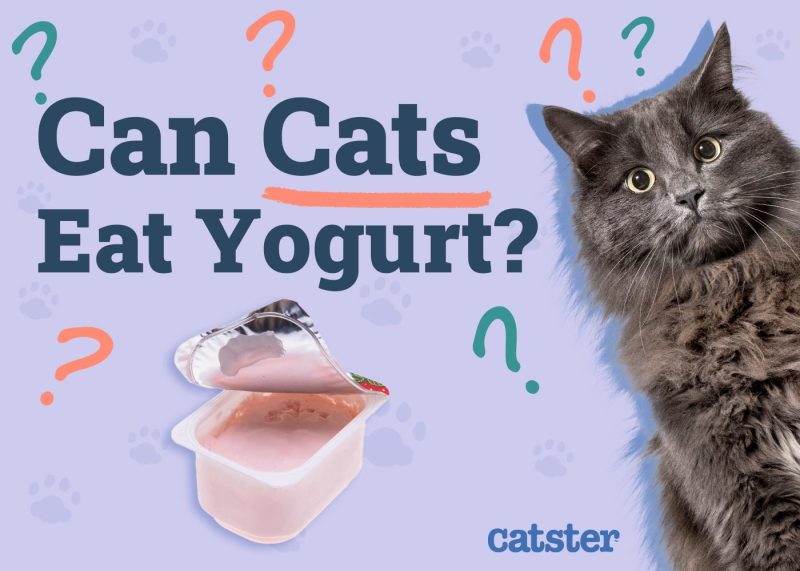
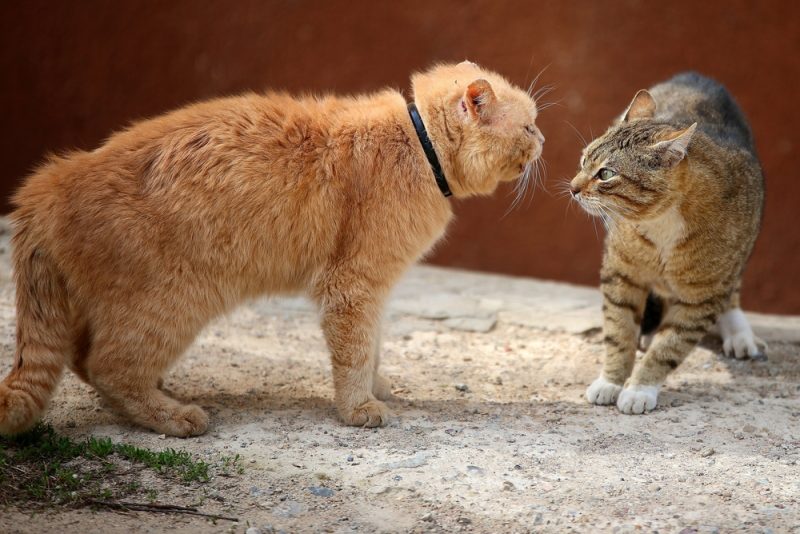
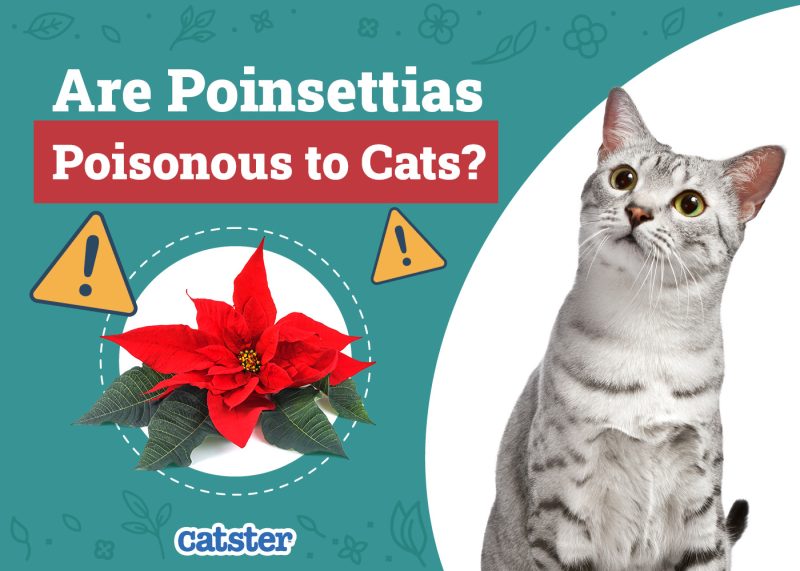
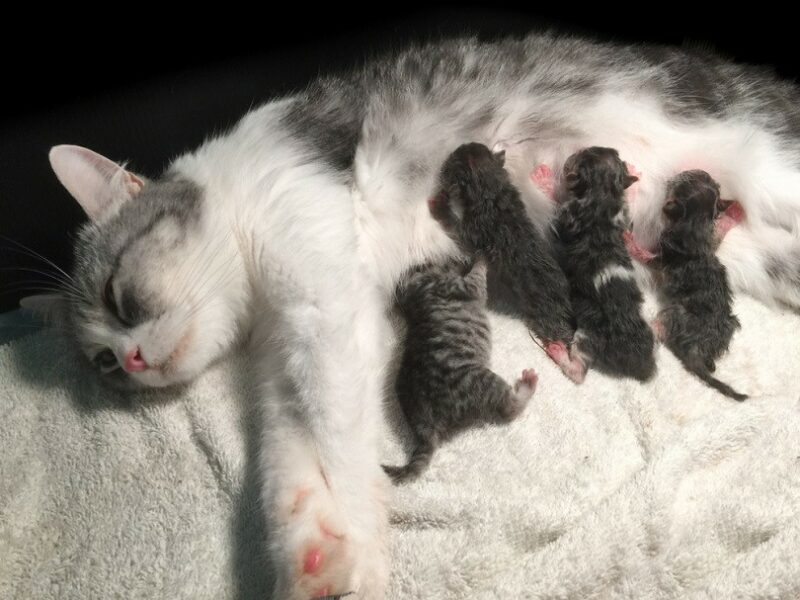
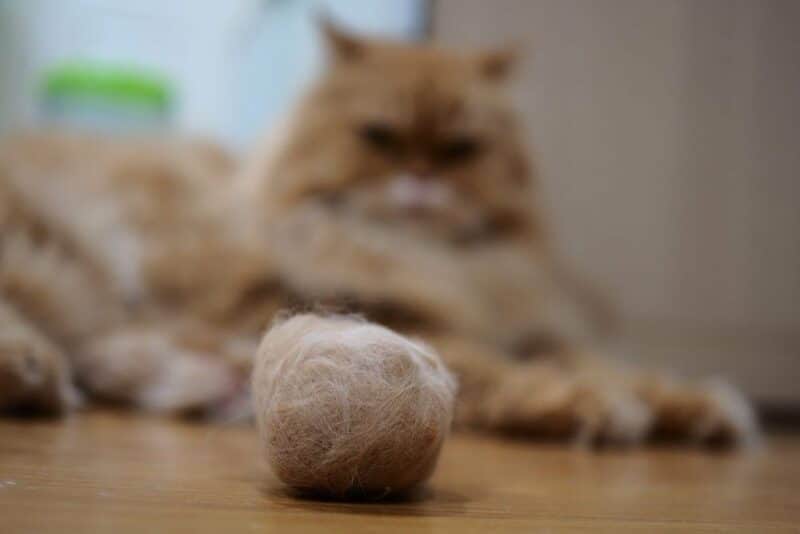
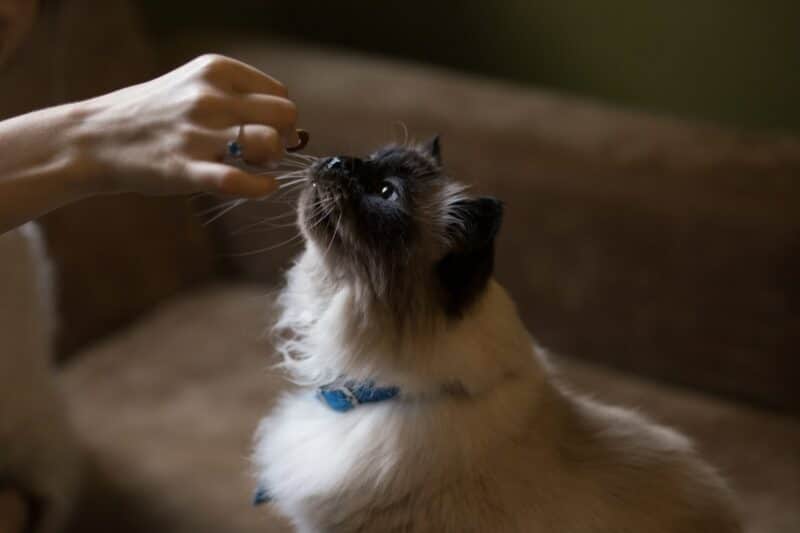
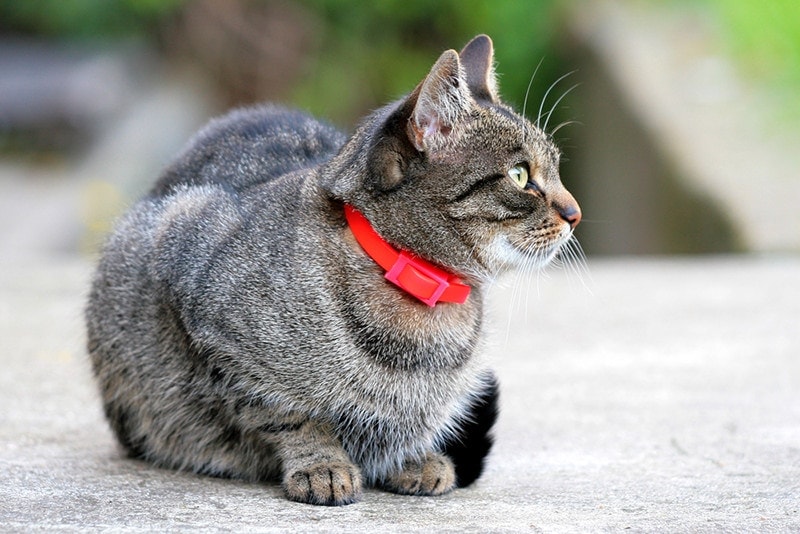
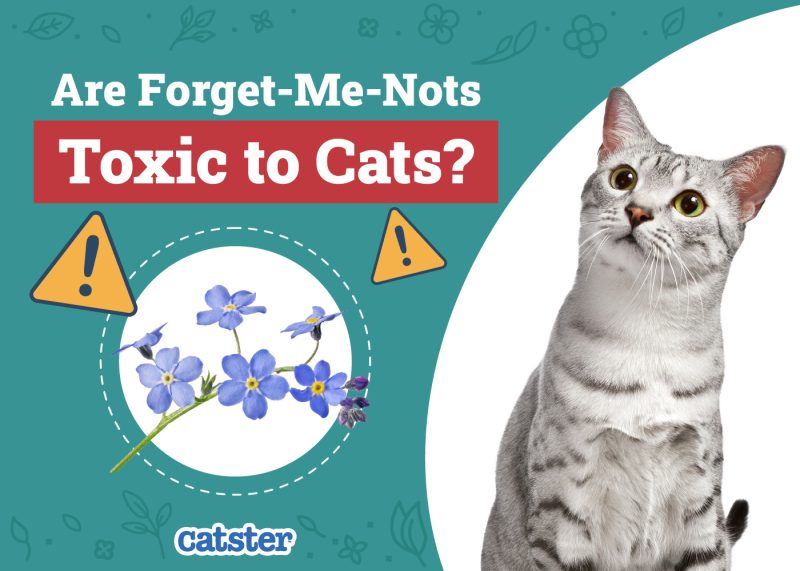



2 Responses
I’m caring for a neighbours cat. The master of the house died recently and this cat wants to sleep on his bed but the wife has closed the door thinking it’s unhealthy for the cat. What do you think? Should I open the door? I don’t know if this will help her grieving process or extend it…Thank you
Hi Beryl, first of all, thanks for caring for this grieving cat. You did mention if the cat used to sleep on the master’s bed before. Remember that cats are creatures of habit, so now it may be losing the master, but also the bed and a sleep companion. Anyway, the best you can do for this kitty is to keep a close eye on her, ensure she has plenty of water, food, and enrichment, and give her attention cuddles, and playtime. If she lost her habitual bed please ensure there is a suitable replacement for her or try to have the wife understand this too. These ideas may help: Ways to Provide Mental Stimulation for Cats – https://www.catster.com/cat-health-care/ways-to-provide-mental-stimulation-for-cats/
Best wishes.